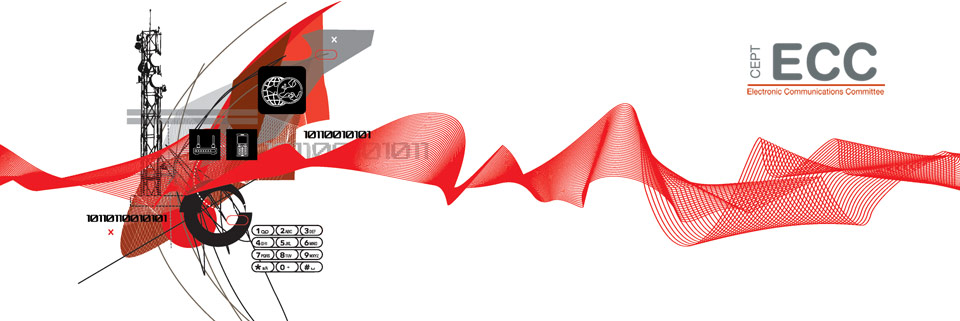Ready to support European
interests in WRC-12
With the World Radiocommunication Conference 2012 (WRC-12) fast-approaching, the CEPT has been focused on getting the final preparations in place to support European interests at this major conference.
The ECC's Conference Preparatory Group (CPG) has been working actively to resolve many outstanding issues and has already adopted European Common Proposals (ECP) on two-thirds of the WRC-12 agenda items.
But the road has not always been easy. For example, the CPG is still struggling to balance, on the one hand, the requirement of commercial mobile satellite operations in the L band and, on the other hand, the need to enforce the priority given in this band to aeronautical satellite communications, which would be of benefit to the satellite component of SESAR (Single European Sky ATM Research). However, the mood is in favour of a compromise and there has been tremendous progress since the beginning of 2011 in many difficult WRC-12 agenda items.
The most striking one relates to the digital dividend band (790-862 MHz) where there has been a hot debate on the regulatory procedure to be applied for the coordination between countries wishing to use this band for mobile services and countries having deployed an aeronautical radionavigation system, e.g. the Russian Federation. During the ITU's Conference Preparatory Meeting for WRC-12 (CPM), in February 2011, discussions took place between the Regional Commonwealth in the field of Communications (RCC)¹ and CEPT, which resulted in a process to ensure that all necessary bilateral agreements will be reached before WRC-12 with satisfying conditions for the operation of both services. In this case, the details of the regulatory provisions in the Radio Regulations, discussed under WRC-12 agenda item 1.17, will become irrelevant. A framework agreement was agreed and, since then, bilateral/multilateral agreements have already been signed between Hungary and Ukraine, the Baltic countries and the Russian Federation, Poland and the Russian Federation, Finland and the Russian Federation.
Another impressive progress has been made in the area of procedures applying for coordination and notification of satellite networks. All satellite operators rely on ITU rules for their legal rights in spectrum and orbit access. These rules are based on the principle of a maximum period (i.e. seven years) between the time when the procedure is initiated and the time the satellite is brought into use, so as to avoid pre-emption of the resource. However, the ambiguity in the procedures (e.g. what is meant by 'bringing into use'? how to take into account a suspension in the operation of your satellite? how to demonstrate that the satellite is really in operation?) has led to an increased number of 'paper satellites', an exacerbated scarcity of the resource in all bands, some difficulties for the ITU in applying and controlling the rules, etc. The CEPT will submit a forward-looking proposal for modification and clarification of the rules, prepared by the satellite industry and administrations, which will be a significant step towards achieving a clear level playing field for satellite operators.
High on the political agenda is also the request to have a new agenda item for the next WRC (in 2015 or 2016) to respond to the increasing spectrum requirement of mobile broadband in a harmonised way through the identification of spectrum for International Mobile Telecommunications (IMT). The CEPT administrations had various views on the objective of such an agenda item, in particular regarding potential candidate bands, but reached an agreement for a clear and open agenda item which is likely to trigger many studies in the next few years!
The next step is to finalise all remaining ECPs at the CPG meeting in November. Then, CEPT will be ready for WRC-12 and in a strong position to support European interests on this important world stage.
Eric Fournier
Chairman of the ECC's Conference Preparatory Group
¹The RCC's members are almost all members of the CEPT, but in this case the balance of preference differed between these groups of members as a whole.
